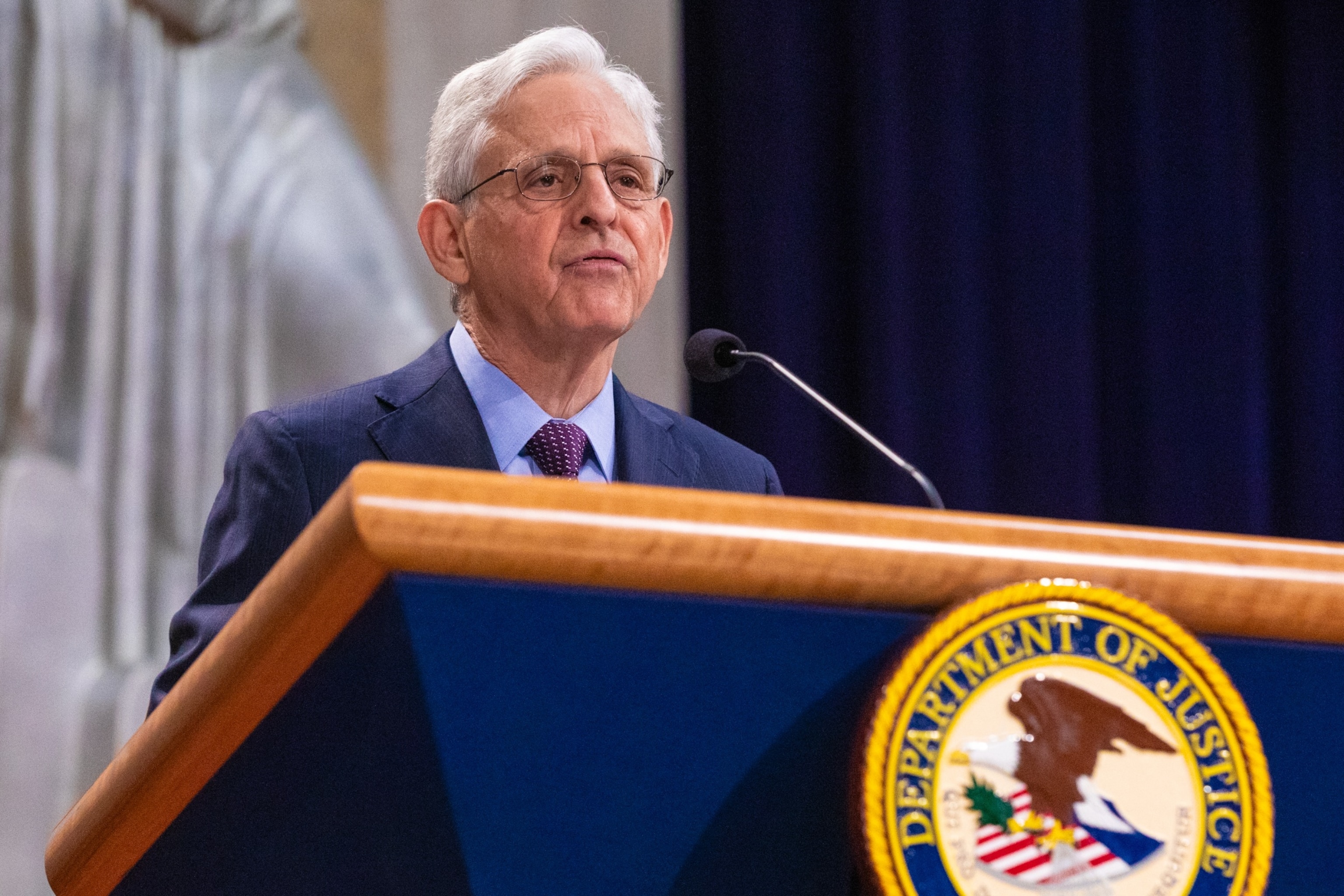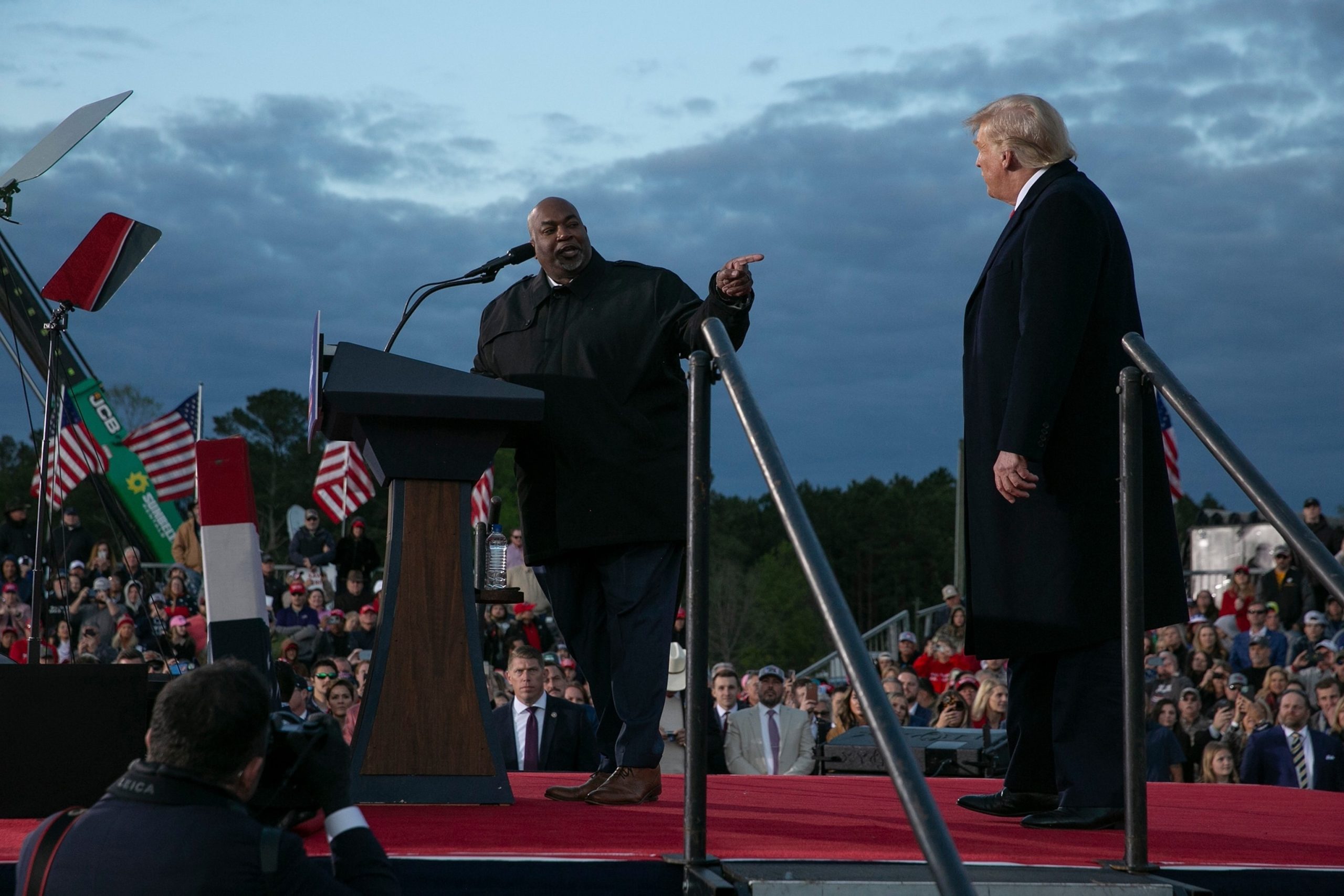The House is set to vote Thursday on an inherent contempt resolution, a rarely used legislative tool, against Attorney General Merrick Garland for refusing to turn over audio tapes of special counsel Robert Hur’s interview with President Joe Biden.
The vote on Florida Republican Rep. Anna Paulina Luna’s resolution is slated to occur on Thursday.
The resolution, which was introduced as privileged on the House floor Wednesday night by Rep. Luna, would fine Garland $10,000 per day until he complies with a congressional subpoena.
The vote comes after two Democratic efforts to table, or effectively kill, the measure late Wednesday were unsuccessful. It also comes after House Republican leaders urged Rep. Luna at a closed-door GOP conference meeting earlier this week to not bring it up for a vote this week.
But Rep. Luna forged ahead with her effort anyway with the blessing of former President Donald Trump.

Anna Paulina Luna speaks at a press conference in Washington on June 26, 2024.
Michael Brochstein/SOPA Images via Shutterstock
It’s not clear if the resolution will pass, but House Speaker Mike Johnson told reporters earlier this week he’d vote in favor of it despite raising concerns about the inherent contempt power.
A Department of Justice spokesperson, ahead of the vote, said, “This is unconstitutional. We are confident our arguments would prevail in court.”
House Republicans voted on June 12 to hold Garland in contempt of Congress over the Biden-Hur audio recordings. Just one Republican, Rep. David Joyce of Ohio, voted against that contempt effort. A few weeks later, on July 1, the House Judiciary sued the Department of Justice to obtain the audio.
The Justice Department declined to prosecute Garland for contempt of Congress, citing what it called longstanding policy against prosecuting an attorney general. Speaker Johnson, in response, said the House would “move to enforce the subpoena of Attorney General Garland in federal court.”
What is inherent contempt?
According to the Congressional Research Service, the inherent contempt power can involve the arrest of the individual who fails to comply with a subpoena or a monetary fine.
“Such a fine would potentially have the advantage of avoiding a court proceeding on habeas corpus grounds, as the contemnor would never be jailed or detained,” the report states.

US Attorney General Merrick Garland delivers remarks during the Commemoration of the 60th anniversary of the 1964 Civil Rights Act at the US Department of Justice on July 9, 2024 in Washington, DC.
Anna Rose Layden/Getty Images
History of inherent contempt
Inherent contempt was last in the news when House Democrats threatened to hold Trump administration officials accountable as they sought Trump’s tax records.
At the time, then-House Speaker Nancy Pelosi, much like Speaker Johnson today, urged patience but left it on the table as an option to keep readily available.
“So, in inherent contempt you send a subpoena, they don’t honor it then hold them in contempt and if they do not comply then you can fine them,” Pelosi explained in May 2019. “And then you can hold them accountable for the money that you fine them.”
The inherent contempt process has not been successfully executed in Congress since 1934 — when the Senate arrested William MacCracken Jr., a Washington aviation industry lawyer, for refusing to cooperate with a Senate investigation. This case went to the Supreme Court, which ruled in 1935 that Congress had acted constitutionally.
ABC News’ Alexander Mallin contributed to this report.
The House of Representatives is set to vote on a resolution for inherent contempt against Attorney General Merrick Garland following the release of audio from a recent interview with President Joe Biden. The audio, which was leaked to the media, has sparked outrage among lawmakers on both sides of the aisle.
In the interview, President Biden can be heard discussing his frustration with Garland’s handling of certain legal matters, including the investigation into potential voter fraud in the 2020 election. Biden expresses his disappointment in Garland’s lack of action on these issues and suggests that he may need to consider replacing him as Attorney General.
The leaked audio has raised concerns about the independence of the Department of Justice and whether Garland is truly acting in the best interests of the American people. Some lawmakers believe that Garland’s failure to address these concerns warrants a vote for inherent contempt, which would allow Congress to enforce its own subpoenas and hold individuals in contempt without relying on the Justice Department to prosecute.
Supporters of the resolution argue that it is necessary to hold Garland accountable for his actions and ensure that he is fulfilling his duties as Attorney General. They believe that Congress must assert its authority and demand transparency and accountability from the executive branch.
Opponents of the resolution, however, argue that it is a politically motivated move designed to undermine the Biden administration and distract from more pressing issues facing the country. They believe that the leaked audio is being taken out of context and that Garland is simply doing his job to uphold the rule of law.
The vote on the resolution for inherent contempt is expected to be a contentious and closely watched affair, with lawmakers on both sides of the aisle weighing in on the issue. It remains to be seen whether the resolution will pass and what implications it may have for the relationship between Congress and the Department of Justice moving forward.



